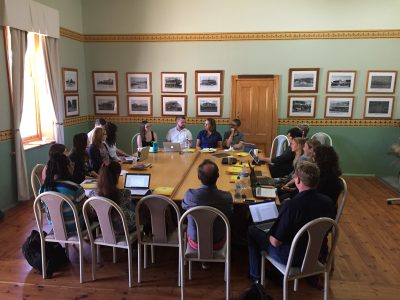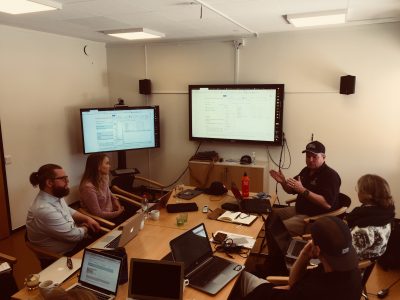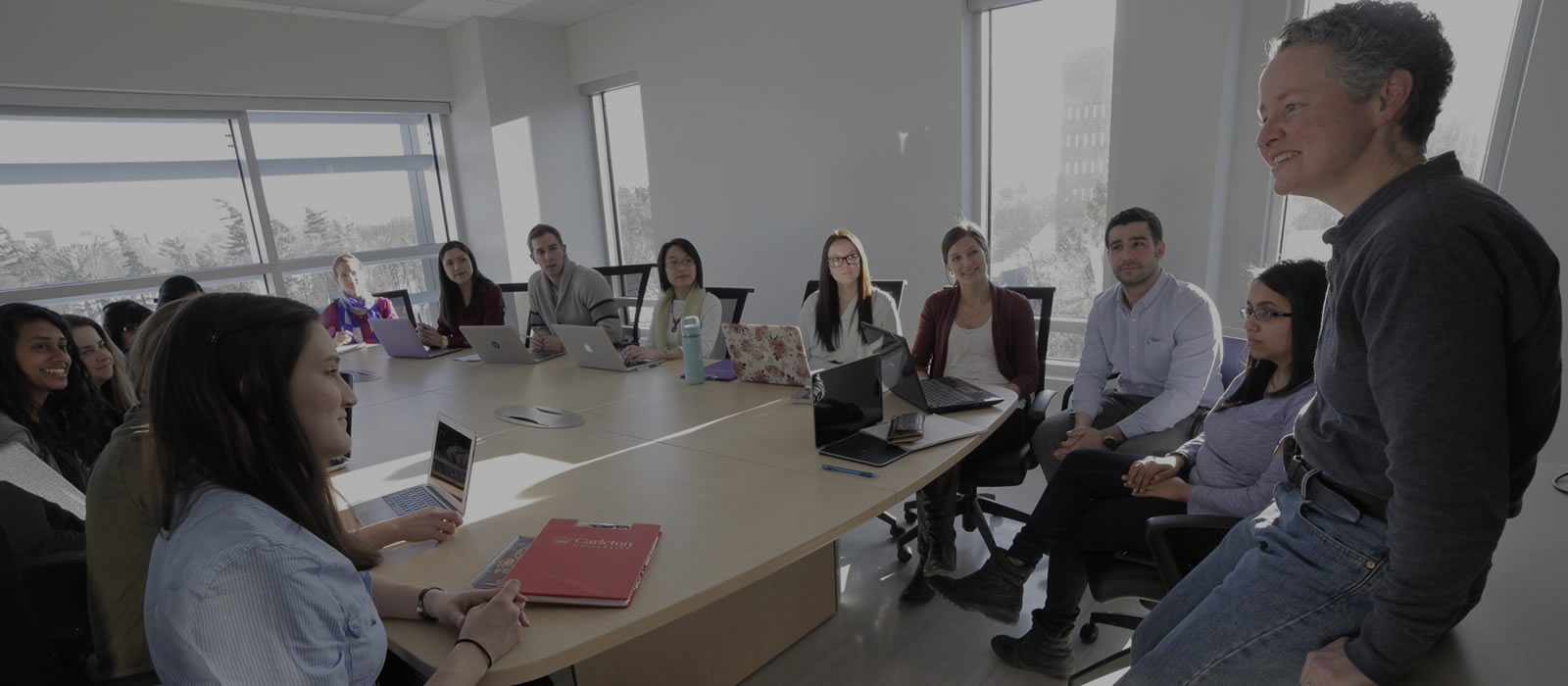A major component of this partnership is training and mentoring. Past Free Range activities have been centred on community-based knowledge exchange workshops with ongoing outreach activities occurring in-between. Each workshop is guided by a central theme, with learning, training, and knowledge mobilization objectives set for each event. Workshops are attended by 1) students and trainees; 2) Free Range team leaders; 3) knowledge partners; and, 4) community representatives.
 There are currently 27 students from 11 institutions involved in the Free Range program, with programs of study including Demography, Sociology, Rural Planning, Medicine, and Health Sciences. Over the next 3 years, we anticipate enrolling an additional 10-15 students per year, for a total of approximately 30-45 students over a 3-year period. These diverse students are connected by the broad agenda to study population processes and change in rural and remote communities of developed nations.
There are currently 27 students from 11 institutions involved in the Free Range program, with programs of study including Demography, Sociology, Rural Planning, Medicine, and Health Sciences. Over the next 3 years, we anticipate enrolling an additional 10-15 students per year, for a total of approximately 30-45 students over a 3-year period. These diverse students are connected by the broad agenda to study population processes and change in rural and remote communities of developed nations.
Students can come from all levels: pre-university, undergraduate, Masters, and Doctoral. Some students have extensive experience working in community-based settings, while others have never conducted field work. Students, particularly those from Canada, have coordinated the Free Range activities with specific program requirements, including credit for senior honours essay, Master’s independent study courses, or PhD research.
The program has been developed with career mentorship in mind. Mentors who are experts in their field have been assigned to each topic area and will guide students throughout their period of study. Some graduate students have also been identified that have specific expertise that can be shared with other students. In these cases, students will be asked to develop training sessions for other students and provide guidance in developing their projects. As such, the skills that we have proposed to cover in training workshops are also broad, covering qualitative methods and quantitative skills.
 First, the basis of this work is community engagement, emphasizing qualitative skills including interviewing, focus groups, and expert panels. The skills required to perform this work will be covered in sessions at each workshop. Second, most projects involve an aspect of quantitative analysis, whether population-based analysis using census or register data, mapping and GIS for social science data, or data visualization. Third, as we consider the Free Range program to be an outreach activity as well as a training program, there is a need for developing skills in conducting scoping reviews, knowledge syntheses, policy briefs, academic publishing, presenting to communities or academic audiences. The objective is that after taking part in workshops, participants will be able to apply these skills in both the specific projects they are aligned with as well as beyond their academic experience.
First, the basis of this work is community engagement, emphasizing qualitative skills including interviewing, focus groups, and expert panels. The skills required to perform this work will be covered in sessions at each workshop. Second, most projects involve an aspect of quantitative analysis, whether population-based analysis using census or register data, mapping and GIS for social science data, or data visualization. Third, as we consider the Free Range program to be an outreach activity as well as a training program, there is a need for developing skills in conducting scoping reviews, knowledge syntheses, policy briefs, academic publishing, presenting to communities or academic audiences. The objective is that after taking part in workshops, participants will be able to apply these skills in both the specific projects they are aligned with as well as beyond their academic experience.
The above skills, in addition to being a part of an academic program of study, will provide students and trainees a broad set of skills that are applicable outside of the university setting. Importantly, we emphasize a true, multi-disciplinary approach in this project, where social issues are seen as complex and multi-faceted, requiring an approach that transcends domain boundaries. From this perspective, issues of population decline are social, cultural, economic, and political; issues with recruitment of professionals are based in planning, sociology, economics, demography, and other disciplines.
